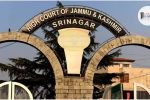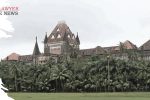Serious Doubt Arises From the Conduct of Eyewitnesses And Recovery From Open Space: Supreme Court Acquits Man of Murder Charges Due to Inadequate Evidence

In a significant verdict, the Supreme Court of India has acquitted Jasobanta Sahu, who was earlier convicted for the murder of his uncle over a property dispute. The bench, comprising Justice B.R. Gavai and Justice Sandeep Mehta, found critical flaws in the credibility of the eyewitnesses and the procedural handling of the confession and recovery of the murder weapon.
Legal Context and Background:
The case centered around the conviction of Jasobanta Sahu under Section 302 of the Indian Penal Code (IPC) for allegedly murdering his uncle. The initial conviction by the Trial Court under Section 304 Part I was escalated to Section 302 IPC by the High Court, relying heavily on eyewitness accounts and an extra-judicial confession.
Facts and Issues:
On October 9, 1988, a report was filed claiming that Laxminarayan Sahu had been murdered following a longstanding property dispute. The police arrested Jasobanta Sahu, and investigations led to the recovery of a knife purportedly used in the murder. Eyewitness accounts from PW1 and PW2 were pivotal in the initial convictions. However, discrepancies in their testimonies and the circumstances surrounding the confession and weapon recovery were critical in the appeal.
Court Assessment:
Eyewitness Testimony Reliability: The Court noted significant inconsistencies in the testimonies of PW1 and PW2, raising doubts about their presence at the crime scene. Their delayed statements and contradictory accounts further weakened the prosecution’s case.
Extra-judicial Confession and Recovery of Weapon: The Supreme Court scrutinized the extra-judicial confession to PW6, highlighting its non-spontaneous nature and the dubious circumstances surrounding the confession and weapon recovery. The justices remarked, “The evidence of the I.O. and the Panch witnesses i.e., PW5 and PW20, would reveal that the recovery of the weapon was made from an open place… As such, much reliance cannot be placed on such recovery.”
Judicial Analysis: Justice Gavai pointed out, “A serious doubt arises from the conduct of PW1 and PW2 as to whether they were really the eyewitnesses to the incident or not.” The Court found that the evidence presented did not meet the rigorous standards of proof ‘beyond reasonable doubt’ required for a conviction under Section 302 IPC.
Decision: The Supreme Court allowed the appeal, setting aside the convictions by both the Trial Court and the High Court. Jasobanta Sahu was acquitted of all charges due to the unreliability of key evidence and procedural errors in handling the case.
Date of Decision: April 30, 2024
Jasobanta Sahu vs. State of Orissa






